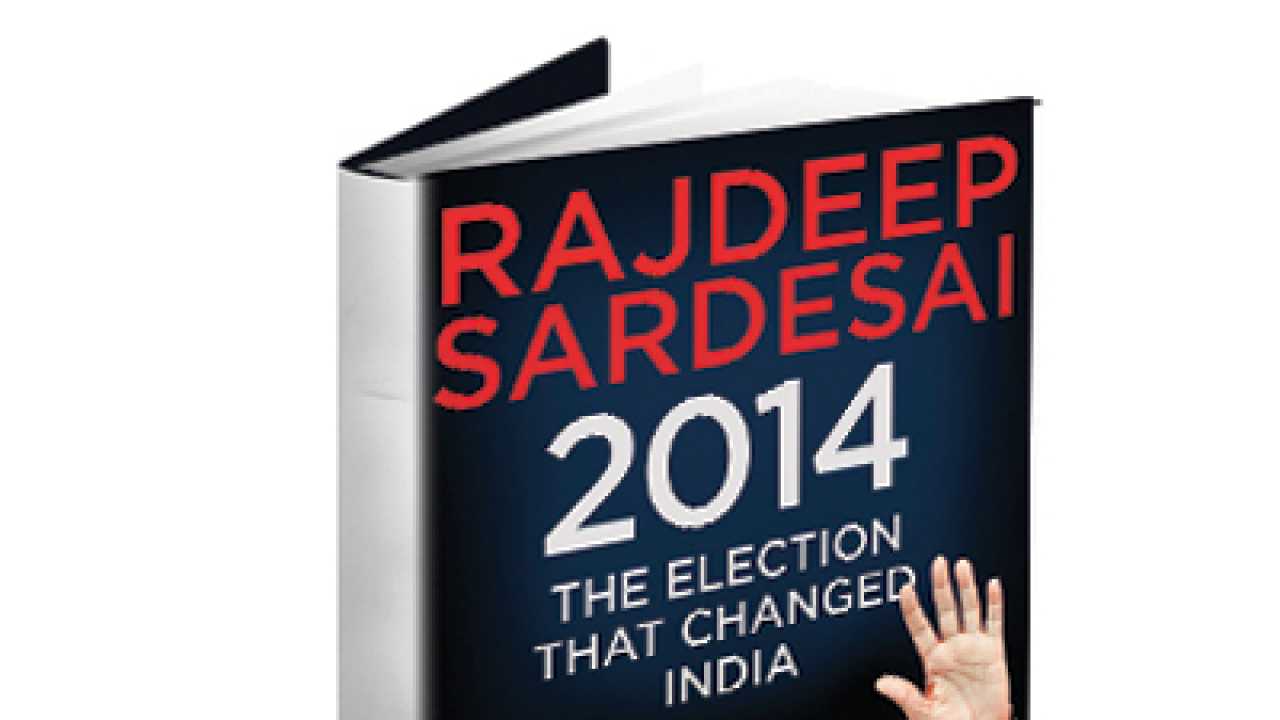
Book: 2014- The Election That Changed India
Author: Rajdeep Sardesai
Publisher: Penguin/ Viking
Pages: 372
Price: Rs 599
It's been barely six months since Election 2014 and given the saturation coverage you would think there was nothing more left to say. Yet, Rajdeep Sardesai's 2014: The Election That Changed India reads like a fast paced thriller. The journalist, who traces Narendra Modi's campaign to be prime minister and the nitty-gritty of the BJP's advertising and social media strategy in his book, talks to Gargi Gupta about his own chequered relationship with the man, the game changer election and why his book on the media will have to wait. Edited excerpts:
So soon after the elections, weren't you afraid that the book would lack perspective that the lapse of time brings with it?
If I tried to write this book two-three years down the line then it would have become about Modi's government, not the elections.
Why do you think that the 2014 elections were a game changer?
I think it will change the way elections are fought. Elections are increasingly going to be fought with media power, with technology, by trying to make it as presidential as possible. The ability to energise your cadre, to take the battle from maidan to media will be the main factor. The BJP has also mastered the art of using money intelligently. It has now decided to spend the bulk of the money in the last 15 days. That's what they did in Maharashtra this time. (Of course) it won't succeed every time.
Other events - the Ambani takeover of Network 18 that led to your exit from CNN-IBN, the channel you had set up - were happening simultaneously. But you don't talk much about it.
I didn't want to go into that because I didn't want to personalise beyond a point. Those events are not central to the elections - they are central to me.
That said, the original idea was to write a book on the media. But if I write an honest book, I'll have to write about colleagues, people I've worked with. It's going to make a lot of people uneasy and might mean that I can't write a column in any newspaper. So self-preservation prevented me from going in that direction. That's definitely on my mind as a retirement book.
I couldn't decide by the end of the book what your feelings for Modi are - whether you still feel suspicious of him or feel a kind of fascination?
I have grudging respect increasingly for Narendra Modi the politician because he's a karmayogi and I do see his 24/7 energy, his ability to stay focussed, to transform his image… is remarkable. He's a great marketer. However, I also have deep reservations about certain aspects of his persona - the authoritarianism, the fact that he was reared on the teaching of Golwalkar and now suddenly talks about Patel; someone who doesn't invite his family to his swearing in. I wonder whether he is completely unemotional.
Do you think Modi has changed?
Between 2002 and 2014, there has been a remarkable transformation. I believe it's careful, conscious, deliberate strategy to transform himself from a Hindutva icon to a development icon. And he was clever enough to realise that that was his winning card. But the Modi juggernaut was created by the failings of the Congress. India was looking for this kind of muscular leader.
Is there a lesson here for the 'pseudo-secular' English media?
I think the critics of Modi pigeonholed themselves into a corner. They were not willing to see that he was evolving. There are many positives - I am struck by the manner in which he was able to empower the young.
But the media has been unabashedly laudatory since. Do you think there's a danger now of the critical space for media shrinking?
In this great city of ours, (sab log) ugte sooraj ke saath jag jate hain. Modi is now the rising sun. This Diwali Milan with journalists taking selfies with him... fifteen years ago, at least two journalists would have risen up and said, Modiji please take some questions. The space for dialogue has shrunk. Conversely, there is also self-censorship.
Modi didn't give you an interview during the campaign but you seemed to talk to him often.
I'd talk to him once in a week - 10 days, or if it was something important I'd ring him up. It was to keep the relationship going. Modi that way is good - you ring him up, he calls back.
Rajdeep Sardesai will be speaking at the Zee Jaipur Literature festival 2015